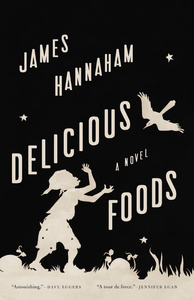Take a photo of a barcode or cover
challenging
dark
emotional
reflective
sad
tense
medium-paced
Plot or Character Driven:
Character
Strong character development:
Yes
Loveable characters:
Complicated
Diverse cast of characters:
Yes
Flaws of characters a main focus:
Yes
challenging
dark
emotional
sad
tense
medium-paced
Plot or Character Driven:
Character
Strong character development:
Yes
Loveable characters:
Complicated
Diverse cast of characters:
Yes
Flaws of characters a main focus:
Yes
Cultural criticism at its finest. This book has it all.
Racism. A fall from grace. Addiction. Unfair labor practices. Family. Loyalty Forgiveness.
Scotty’s perspective is haunting and unlike any other I’ve ever read.
Racism. A fall from grace. Addiction. Unfair labor practices. Family. Loyalty Forgiveness.
Scotty’s perspective is haunting and unlike any other I’ve ever read.
Hot damn. Best thing I've read in a long time. Dark, powerful and also funny. So good it sometimes made my chest hurt.
Jesus this is an intense book. It took me so long to read mostly because it would just wear me down after 75 pages or so, it’s just so completely full of suffering and misery. Don’t get me wrong the prose is so unique and it’s a fascinating idea, I’d highly recommend it but wow this was a lot to contend with.
dark
sad
tense
medium-paced
Plot or Character Driven:
Plot
Strong character development:
Complicated
Loveable characters:
Complicated
Diverse cast of characters:
Yes
Flaws of characters a main focus:
Yes
Very well written, but tough to read, in two senses: 1) one of the narrators is crack cocaine. "He" uses non-standard English, making the reader work a bit to keep up. 2) there are a number of scenes that are just rough to consider happening, including one in the first few pages where a character is driving a car with arms that are still bloody from the recent amputation of both hands.
I would recommend it to most adult readers, for its depth and compassion and heartbreak and healing, but it's not for the faint of heart.
I would recommend it to most adult readers, for its depth and compassion and heartbreak and healing, but it's not for the faint of heart.
The way author James Hannaham begins this book is quite brilliant. It starts with a boy of 17, Eddie, driving a car for the first time. He’s on his own, and you find out that something absolutely awful has just happened to him. And you realize you probably won’t learn why it happened until much later in the book but you will probably have to read about it in detail. And you know that everything between this first chapter and that reveal will be dark. And you realize you really like this boy and that he’s a really good kid and a strong kid with ethics and morals, and he’s the kind of person you route for. And all this gives you a sense of dread. That dread doesn’t leave you until long after you’ve finished the book.
Delicious Foods is an intentional misnomer of sorts. When I first heard the title, I thought the book would be about foodies or cuisines, something I didn’t need to read about. But, this book, instead, reminded me of the first time I watched the documentary Food, Inc. when it focuses on the human trafficking aspect of industrialized agricultural. A lot of this book takes place on a farm that utilizes modern slavery. This was a uniquely devastating setting; it’s a topic I rarely hear or see discussed.
Race and addiction are major themes in this book, too. Hannaham makes an interesting and profound choice to have the drug be the narrator of some of the story. So smart since when you’re speaking to an addict who is using you never feel like you’re communicating with the actual person.
I tore through this book; partly because of the writing, partly because I wanted to see whether Eddie was going to be okay, and partly because I really wanted this book to be over; not because it was bad but because it was so perfectly heavy.
Delicious Foods is an intentional misnomer of sorts. When I first heard the title, I thought the book would be about foodies or cuisines, something I didn’t need to read about. But, this book, instead, reminded me of the first time I watched the documentary Food, Inc. when it focuses on the human trafficking aspect of industrialized agricultural. A lot of this book takes place on a farm that utilizes modern slavery. This was a uniquely devastating setting; it’s a topic I rarely hear or see discussed.
Race and addiction are major themes in this book, too. Hannaham makes an interesting and profound choice to have the drug be the narrator of some of the story. So smart since when you’re speaking to an addict who is using you never feel like you’re communicating with the actual person.
I tore through this book; partly because of the writing, partly because I wanted to see whether Eddie was going to be okay, and partly because I really wanted this book to be over; not because it was bad but because it was so perfectly heavy.
❝She lied, he figured, because the truth was always a tiger, and the past, with its ugliness and struggle, was a ditch so deep with bodies it could pass for a starless night.❞ — p. 12
4.5 stars rounded down.
I vacillated strongly between a four and five star rating. Its emotional impact warranted five stars, but there were structural issues that I ultimately felt undermined this impact and hindered the momentum that Hannaham had cultivated in the beginning of the story.
Delicious Foods is unrelentingly bleak, a tale of modern slavery, racism, human trafficking, addiction, and grief. It has one of the most compelling openings I’ve read in a while, and it became evident from the get-go that Hannaham’s command of craft is exceptional. His prose is rich and rhythmic, utilitarian where it needs to be and poetic elsewhere. It evokes a profound sense of loneliness and despair, inviting and engendering our empathy for Darlene and Eddie. I couldn’t disagree more with some people’s assessment of this book as a satire or dark comedy. I understand that this originates in the personification of crack cocaine, “Scotty,” who serves as a narrator in some of Darlene’s sections, but I found nothing humorous about the tone. It was callous, removed, reveling in the suffering of his “friends.”
That being said, I found the pacing and the switch between perspectives very jarring for the first two thirds of the book. We get three perspectives: third person limited from Eddie’s POV, third person omniscient with a focus on Darlene, and first person from “Scotty,” the latter of which is meant to represent Darlene’s first person perspective. The story isn’t told in chronological order for the first two thirds of the book and I wasn’t personally a fan of its execution in this story, although I admit that I’m struggling to articulate why at this moment. To the narrative’s credit, the differing time periods converge rather smoothly in the final act.
Speaking of the final act, the conclusion is where most stories I read fall apart. Hannaham, however, absolutely nailed the landing. The conclusion was a natural culmination while still being tightly paced and wrought with tension. I’ve seen some reviews contend that the conclusion is rushed, and even though I can see the merit in that argument, I personally disagree.
When I was only a few dozen pages away from the ending and things were only growing ever grimmer, I was convinced that there would be no glimmer of hope by the true conclusion. There are often no happy endings in real life, so I’m always prepared to accept that possibility in fiction, but for this particular story, it would have ended up leaning into the misery porn category with no greater purpose than “life sure is fucked up, isn’t it.” I’m glad that the book didn’t end in this manner. A beam of sunlight somehow pierces the shadows, elucidating what the book has sought to convey all along: the impossible tenacity of the human spirit.
Highly recommend.
I always enjoy it when an author strays perhaps not so very far from the reality of life as we know it (the cheap lives of migrant workers, drug addiction, institutionalized racism, slavery), just turning things at an angle, mixing them up a tiny bit to make them feel a bit less commonplace, a bit more improbable (although this is inspired by an actual case) and so that much more revelatory. I feel this way about some of George Saunders' stories too: as different as they are from this grim and gripping odyssey, they tell us just how things are by twisting them just a little bit, enhancing the view with an added element of strangeness. Hannaham's writing and narrative drive is tremendous, doing a neat job of propelling the reader through some very grim and horrific territory, and the voice of Scotty - aka Crack - is a brilliant device for beguiling the reader into some nightmarish realities, but also reflecting just how heavenly hell can seem to junkies on the pipe. It feels like a narrative feat on a par with the voice of Huckleberry Finn in charming the reader into a disconcerting ambivalence about matters one might be otherwise prone to pious judgements over.








